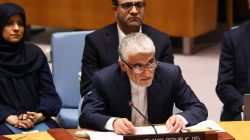Dr. Johnson Asiama, the governor of the Bank of Ghana, expressed the government’s fresh dedication to forming long-term investment collaborations during a closed-door meeting for investors organized by Invest Africa and Standard Chartered alongside the annual gatherings of the African Development Bank.
Dr. Asiama stated that Ghana’s economy has returned “to a credible trajectory” following a phase characterized by economic instability due to factors such as rising prices, devalued currency, and uncertain investor confidence. He stressed the importance of consistent policies, strengthening basic economic indicators, and dedicating efforts to collaborative ventures based on mutual value.
Following a tumultuous 2024, the nation experienced a significant recovery across various crucial economic measures. The real GDP surged by 5.7% in the previous year, surpassing projections, and is anticipated to grow at a rate of four percent in 2025 even with challenging global conditions.
Tolong support kita ya,
Cukup klik ini aja: https://indonesiacrowd.com/support-bonus/
Furthermore, the cedi has strengthened by 21.5 percent year-to-date — overturning a 19.2 percent decline from the prior year.
Inflation has slightly decreased from 23.8% in December to 21.2% in April, benefiting from stricter monetary policies and a stable exchange rate. Foreign reserves have risen to $10.67 billion, which equates to about 4.7 months of import coverage. Additionally, Ghana reported a current account surplus of $2.12 billion for the initial quarter.
Dr. Asiama highlighted a synchronized macroeconomic approach aimed at achieving stability, fostering confidence, and promoting growth. The Bank of Ghana has upheld a stringent monetary policy, enhanced liquidity management via proactive open-market activities, and collaborated closely with the Ministry of Finance on fiscal consolidation efforts.
Maintaining investors’ trust, as he highlighted, hinges on additional improvements in public sector management, financial intermediary services, and the overall investment environment. The Bank’s choice to keep its policy interest rate unchanged at 28 percent recently underscores this approach.
Asiama stated that the Monetary Policy Committee agreed unanimously on this decision, which aims to solidify progress toward reducing inflation and maintain stable public expectations.
Additionally, the central bank is transitioning away from less proactive measures such as the non-interest-bearing cash reserve ratio towards an increased focus on dynamic open market operations — steps anticipated to enhance liquidity management and gradually facilitate targeted lending to the private sector.
The Governor stated that enforcing foreign exchange regulations more rigorously increased reserves and improved price transparency in the market, which has aided in reviving the value of the cedi.
“The cedi’s performance mirrors genuine reforms, true discipline, and steadfast resilience,” he asserted.
Provided by Syndigate Media Inc. (
Syndigate.info
).






